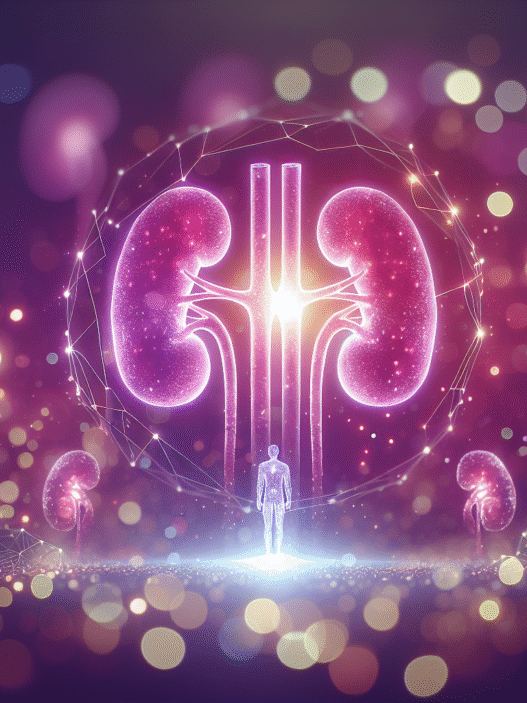Understanding Resveratrol
Introduction to Resveratrol
Resveratrol is a naturally occurring compound found in over 70 plant species, primarily in the skin and seeds of red grapes. It mimics antioxidant activity within the body, contributing to cardiovascular health and blood pressure regulation. This polyphenol has gained attention for its potential anti-aging properties, making it a topic of interest for those seeking natural health solutions.
When ingested, resveratrol is metabolized in the liver and intestine, converting into glucuronide and sulfate forms, and is largely excreted within the first four hours after consumption. Its high antioxidant potential, coupled with its ability to exhibit antitumor activity, positions resveratrol as a promising candidate for the prevention and treatment of several types of cancer.
Sources of Resveratrol
Resveratrol can be obtained through various dietary sources, particularly:
| Food Source | Resveratrol Content (mg per 100g) |
|---|---|
| Red Grapes | 0.30 – 1.89 |
| Red Wine | 0.2 – 2.0 |
| Blueberries | 0.03 – 0.09 |
| Cranberries | 0.03 – 0.07 |
| Pomegranates | 0.6 – 0.9 |
Consuming these foods, such as grapes, wine, blueberries, cranberries, and pomegranates, can safely increase resveratrol intake (Medical News Today). Some individuals opt for resveratrol supplements, particularly for higher dosage requirements often aimed at lowering blood pressure.
To learn more about the impact of resveratrol on specific health outcomes, review the sections on its anti-aging properties and its role in overall well-being.
Health Benefits of Resveratrol
Resveratrol, a naturally occurring compound found in certain plants, has garnered attention for its various health benefits, particularly concerning heart health, cognitive function, and inflammation reduction.
Cardiovascular Benefits
Resveratrol exhibits notable effects on cardiovascular health. It may help lower blood pressure by increasing the production of nitric oxide, which can lead to reduced systolic blood pressure. Several studies suggest that this compound plays a protective role against cardiovascular diseases by helping to:
- Reduce blood vessel damage
- Lower cholesterol levels
- Prevent blood clots (WebMD)
The table below summarizes key cardiovascular benefits associated with resveratrol:
| Benefit | Effect |
|---|---|
| Blood Pressure | May lower systolic blood pressure |
| Cholesterol Levels | Helps lower LDL cholesterol |
| Blood Vessel Protection | Reduces damage to blood vessels |
| Blood Clot Prevention | Decreases risk of clot formation |
Cognitive Health Benefits
Cognitive health is another area where resveratrol has shown promise. Research indicates that it may protect against neurodegenerative diseases by improving cognitive function and reducing inflammation in the brain. Resveratrol has been linked to improved insulin sensitivity in individuals with Type 2 diabetes, which could further benefit cognitive performance.
Further studies suggest that resveratrol may enhance blood flow to the brain, increasing the overall health of brain tissue. This can lead to better memory and concentration, particularly in aging individuals.
Anti-inflammatory Properties
Resveratrol also holds anti-inflammatory properties, making it beneficial for managing chronic inflammation associated with various health issues. It may improve insulin resistance, lower blood sugar levels, and contribute to lowering elevated blood pressure in individuals with Type 2 diabetes.
The following table outlines the anti-inflammatory effects of resveratrol:
| Effect | Description |
|---|---|
| Insulin Resistance | Improves insulin sensitivity |
| Blood Sugar Levels | Lowers blood sugar levels |
| Blood Pressure | Reduces elevated blood pressure |
In summary, resveratrol offers a range of health benefits, particularly in supporting cardiovascular health, enhancing cognitive function, and reducing inflammation. To explore more about resveratrol’s health implications, consider researching topics such as does resveratrol burn belly fat? and what food is highest in resveratrol?.
Resveratrol and Chronic Diseases
Resveratrol is gaining attention for its potential effects on chronic diseases. This section explores its role in cancer prevention, diabetes management, and neuroprotection.
Resveratrol and Cancer Prevention
Research indicates that resveratrol may be beneficial in the prevention of certain cancers. Its potent antioxidant properties help combat oxidative stress, which is linked to cancer progression. Furthermore, resveratrol exhibits several mechanisms that can inhibit cancer cell proliferation and induce apoptosis (programmed cell death) in various cancer types.
Studies have suggested that resveratrol can modify cancer-related signaling pathways, making it a promising candidate for integrative approaches in cancer prevention.
| Cancer Type | Evidence of Resveratrol Benefit |
|---|---|
| Breast Cancer | Inhibits tumor growth and prevents metastasis |
| Colon Cancer | Reduces polyps and tumor formation |
| Prostate Cancer | Alters androgen receptor activity |
Understanding how resveratrol interacts with cancer treatment can be crucial. For detailed insights into its various effects, refer to does resveratrol burn belly fat?.
Role of Resveratrol in Diabetes
The benefits of resveratrol extend to individuals managing Type 2 diabetes. Research has shown that resveratrol improves insulin sensitivity along with lowering blood sugar levels. It also helps in regulating elevated blood pressure, which is often a concern for individuals with metabolic syndrome.
| Effect of Resveratrol | Description |
|---|---|
| Insulin Resistance | Enhances insulin sensitivity in peripheral tissues |
| Blood Sugar Levels | Reduces fasting blood glucose |
| Lipid Profiles | Improves cholesterol levels and liver enzymes |
These findings suggest that resveratrol may play a key role in managing diabetes risk factors. For more information, you can check the details on is it okay to take resveratrol every day?.
Resveratrol and Neuroprotective Effects
Resveratrol also shows promise in protecting neurological health. Its neuroprotective properties have been studied in relation to neurodegenerative diseases, such as Alzheimer’s and Parkinson’s. The compound helps reduce the production of amyloid-beta (Aβ) proteins, which are associated with Alzheimer’s disease.
Resveratrol’s ability to exhibit anti-inflammatory and antioxidant effects supports the reduction of neuro-inflammation and oxidative stress, both of which contribute to neurodegeneration.
| Neuroprotective Benefit | Mechanism |
|---|---|
| Reduces Aβ Production | Prevents plaque formation in Alzheimer’s |
| Protects Neurons | Shields against oxidative damage |
| Improves Cognitive Function | Enhances memory and learning capabilities |
Understanding the link between resveratrol and neuroprotection can provide valuable insights into its overall health benefits. For further details, refer to is resveratrol safe for kidneys?.
Overall, exploring these aspects of resveratrol reveals a multi-faceted range of potential benefits—extending beyond just anti-aging to significant implications for chronic disease management.
Resveratrol for Well-being
Exploring the benefits of resveratrol, particularly for well-being, reveals several potential advantages. This natural compound has gained attention for its role in promoting anti-aging, metabolic health, and reducing inflammation.
Anti-aging Properties
Resveratrol has shown potential in increasing lifespan in some animal studies by activating genes associated with fighting diseases of aging. This effect is similar to that of calorie restriction, although human results remain uncertain (Healthline).
One of the mechanisms by which resveratrol may exert anti-aging effects is through its antioxidant properties, which help combat oxidative stress, a key contributor to aging. By reducing cellular damage, resveratrol may assist in maintaining youthful physiological functions. Research indicates that resveratrol supplementation can decrease age-associated symptoms and prevent early mortality in obese animals.
Metabolic Benefits
Resveratrol has been linked to improved metabolic health, particularly in those with type 2 diabetes. A double-blind, randomized controlled trial indicated that resveratrol supplements can attenuate hepatic steatosis (fatty liver) and improve cardiovascular health indicators in overweight participants.
Additional studies have shown that resveratrol can enhance flow-mediated dilation, a measure of blood vessel function, particularly in individuals with elevated blood pressure (Nutr Metab Cardiovasc Dis).
Anti-inflammatory Effects
Resveratrol’s anti-inflammatory properties contribute significantly to its overall health benefits. It has demonstrated the ability to reduce inflammation within the body, which is crucial for the prevention of various chronic diseases and the maintenance of well-being. This compound’s anti-inflammatory and antioxidant properties also play a pivotal role in alleviating symptoms and improving overall health.
In summary, resveratrol appears to offer promising benefits for anti-aging, metabolic health, and inflammation reduction. Natural health and holistic wellness seekers looking to incorporate resveratrol into their regimen should consider these potential advantages when evaluating what are the benefits of taking resveratrol?.
Resveratrol: Dosage and Safety
Recommended Dosage
When considering resveratrol supplementation, the recommended dosage can vary. Research indicates that it is generally safe to consume resveratrol in doses of up to 5 grams per day. However, taking more than 2.5 grams daily may lead to abdominal issues such as cramping, flatulence, and nausea. The ideal dosage for humans remains a topic of debate, and studies have produced conflicting results regarding effective amounts.
| Dosage Range | Notes |
|---|---|
| Up to 2.5 grams | Typically well tolerated with minimal side effects. |
| 2.5 to 5 grams | Potential for gastrointestinal side effects. |
Potential Side Effects
While many individuals tolerate resveratrol well, there are potential side effects to consider. High doses may inhibit enzyme activity, potentially increasing the bioavailability and toxicity of certain medications. Additionally, resveratrol may inhibit human platelet aggregation, which raises concerns about bleeding risks when combined with medications like anticoagulants, antiplatelets, or nonsteroidal anti-inflammatory drugs (Medical News Today).
Common side effects include:
| Side Effect | Description |
|---|---|
| Abdominal Cramping | Can occur at higher doses. |
| Flatulence | Increased gas production. |
| Nausea | May be experienced by some individuals. |
To learn more about specific adverse effects, visit our article on what are the negative side effects of resveratrol?.
Safety Considerations
Safety is a paramount concern when considering any supplement. Clinical trials have shown that resveratrol supplementation is generally safe and well-tolerated at doses up to 5 grams per day. However, adverse events such as gastrointestinal symptoms have been reported in higher doses (PubMed Central).
Furthermore, potential interactions with medications should be evaluated. Individuals taking other health supplements or medications should consult a healthcare professional before starting resveratrol to avoid any adverse interactions. It is crucial to ensure that resveratrol does not interfere with other treatments.
For general dosage inquiries, you can refer to our article on is it okay to take resveratrol every day? to gain additional insights into safe consumption practices.
Resveratrol: Current Research
Research surrounding resveratrol continues to evolve, revealing insights into its potential health benefits. This section highlights the findings from clinical trials, offers best practices for consumption, and discusses ongoing studies and future prospects related to resveratrol.
Resveratrol in Clinical Trials
Clinical trials have provided valuable information on the safety and efficacy of resveratrol supplementation. Studies have confirmed that resveratrol can improve vascular function, particularly in overweight or obese individuals with mildly elevated blood pressure (Nutr Metab Cardiovasc Dis). Furthermore, clinical trials indicate that resveratrol supplementation is generally safe and well-tolerated at doses up to 5 grams per day, demonstrating its viability for potential health benefits.
| Study Focus | Key Findings |
|---|---|
| Vascular Function | Improved in obese individuals with elevated blood pressure |
| Safety Profile | Well-tolerated at doses up to 5 grams daily |
Best Practices for Resveratrol Use
To maximize the benefits of resveratrol while minimizing potential side effects, individuals should consider several key practices:
-
Dosage: As mentioned, doses of up to 5 grams per day have been shown to be safe. Before starting any supplement regimen, it is advisable to consult with a healthcare provider, especially for those taking other medications.
-
Supplement Quality: Choosing high-quality supplements from reputable brands can ensure the efficacy and safety of the product.
-
Combining with Other Treatments: Research suggests that resveratrol-loaded nanoparticles may increase the sensitivity of pancreatic cancer cells to certain therapies, indicating potential benefits in cancer treatment. It’s crucial to discuss the combination of supplements with medical professionals to ensure safety and efficacy in treatment plans.
-
Timing: Some suggest using resveratrol at night due to its potential effects on sleep quality and its antioxidant properties. For further exploration on timing, check out why use resveratrol at night?.
Ongoing Studies and Future Prospects
Ongoing research continues to uncover additional applications of resveratrol. Synthetic molecules derived from resveratrol have shown efficacy in preventing cardiovascular diseases and neurodegeneration, as well as extending lifespan in animal studies (Harvard Health Publishing). The versatility of resveratrol in its biological activities, such as antioxidant and anti-inflammatory properties, highlights its potential in clinical applications for a variety of diseases (NCBI).
Future studies may further elucidate the mechanisms behind resveratrol’s positive effects on health, potentially leading to new therapeutic strategies for managing chronic conditions. For those interested in how resveratrol might contribute to weight management, visit our article on does resveratrol burn belly fat?.





















